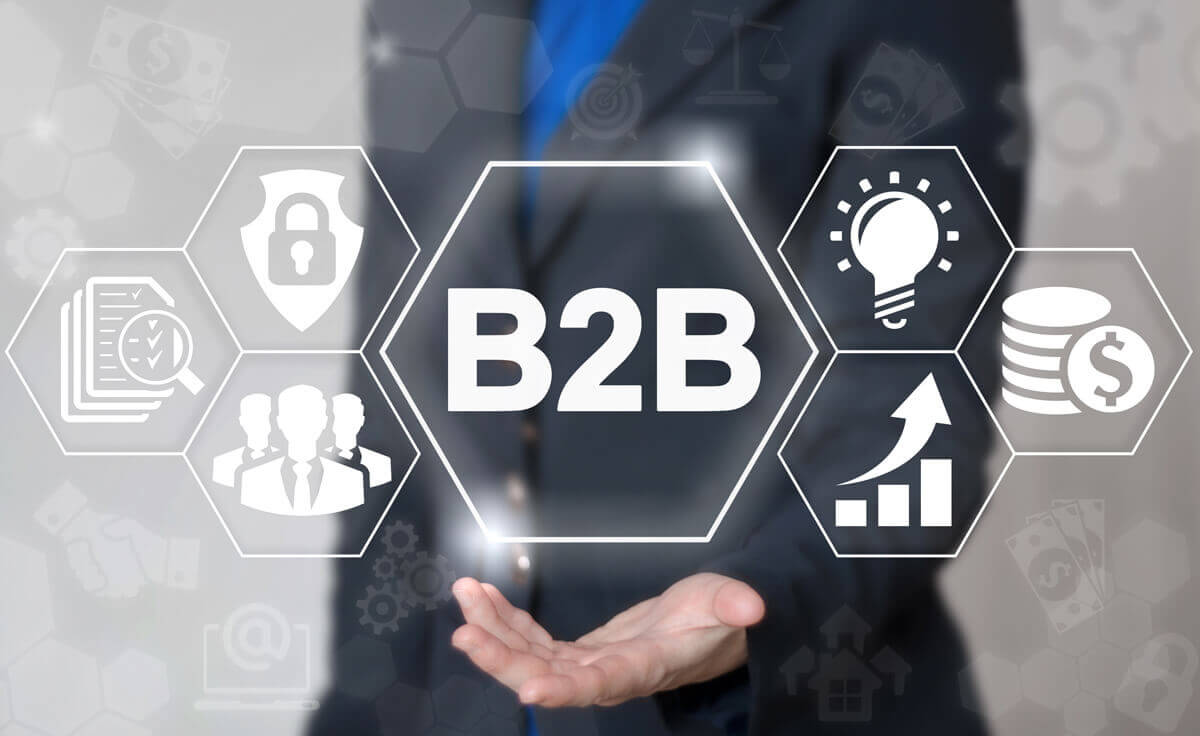09 Jun

The coronavirus pandemic has had an impact on numerous industries around the world, including the business-to-business (B2B) industry. Companies now buy from and sell to each other in a different way than they used to. Businesses have been forced to speed up innovation to survive and grow amid the epidemic. This is due to unprecedented demand and unforeseen situations. Here’s a look at the COVID impact on B2B industries and how they adapt to their new normal.
Acceleration of Digital Transformation
Since the beginning of the COVID-19 issue, the role of digital channels has considerably expanded due to the COVID impact on the B2B scene. According to a McKinsey and Co. poll of B2B decision-makers, digital connections are two to three times more essential to customers than traditional sales interactions.
The COVID Impact on The B2B Industries
The coronavirus pandemic has affected many industries around the world. The business-to-business (B2B) market is no exception. The way companies buy from and sell to each other now looks very different than it used to. Unprecedented demand and unforeseen circumstances have led businesses to accelerate innovation to survive and thrive during the pandemic.
Here’s a look at the COVID impact on B2B companies and how they adapt. COVID-19 has grown for over half of decision-makers whose enterprises sell online (46 percent). According to a recent B2B poll, B2B eCommerce skills are becoming increasingly important as B2B enterprises migrate to online purchases. According to the survey, 64 percent of respondents aim to expand their investments in an eCommerce site.
The Importance of Delivery
Due to the COVID impact on B2B industries and supply chains, businesses are trying to keep up with demand. In addition, they must have the infrastructure to cope with growing online sales. Because delivery services have become increasingly convenient and crucial, businesses with a strong logistics infrastructure can retain clients.
According to Wunderman Thompson data from June 2020, 45 percent of US B2B buyers moved to a new supplier since their old one couldn’t fulfill during the coronavirus epidemic. Many buyers may hesitate to purchase things in person or have initiated online shopping for essentials during the pandemic. Thus, they will use digital and delivery options to meet their B2B shopping demands.
B2B Marketplaces Open Up New Horizons
Due to coronavirus lockdowns, many traditional sales channels have stalled or shut down. Buyers are looking for safer ways to get what they need while avoiding exposure to the coronavirus. As an aspect of the COVID impact on B2B industries, buyers of business items are increasingly turning to marketplaces. This is due to looking for new ways to purchase items and services conveniently online. In response to the epidemic, B2B enterprises have developed new online marketplace techniques to expand inventory and quickly meet the demand for new products.
According to payments research and consultancy firm iBe, global B2B marketplace revenues are expected to exceed $3.6 trillion by 2024. As a result of the coronavirus, 89 percent of purchasing managers are purchasing at least the same or much more in B2B marketplaces, according to a new survey of corporate buyers.
The COVID-19 epidemic presents issues in the short term but also gives a chance to transform B2B sales. This allows businesses to emerge stronger from the crisis. Strengthening sales and delivery capabilities is anticipated to be a basic necessity for success in a post-coronavirus environment as COVID-19 promotes digital transformation in the B2B market.
More About The Covid Impact on B2B Industries
The COVID impact on B2B industries compelled B2B buyers and sellers to go completely digital. What began as a crisis response has evolved into the new normal, with significant consequences for how buyers and sellers conduct business in the future. According to a recent McKinsey study on decision-maker behavior, the great digital transformation is here to stay.
New Digital Transformation for B2B Buyers and Sellers
More than three-quarters of buyers and sellers prefer digital self-service and remote human contact to face-to-face contact with the COVID impact on B2B and B2C. It is a trend that has continued even after the lockdowns were lifted. Of course, one reason is safety. Customers have appreciated the speed and convenience of self-serve and remote interactions. With these, obtaining information, placing orders, and scheduling services has become easier for buyers. Even in industries where field-sales methods have traditionally prevailed, such as pharma and medical items, only roughly 20% of B2B customers say they aspire to return to in-person sales.
The Covid Impact on B2B Industries Is a Game-changer
The COVID impact on B2B industries has been a game-changer for some businesses. For B2B companies, the rapid rise in digital use is a significant opportunity. Virtual sales may help sales companies cut their cost per visit, expand their reach, and considerably boost sales effectiveness. At the same time, they will continue pleasing customers who expect these new ways of connecting to stick over time. These customers are likely to reward suppliers who do it effectively.
Although the opportunity brought by the COVID impact on B2B industries is huge, so is the pressure to take advantage of it. B2B leaders who commit to further digitizing their go-to-market models will gain a competitive advantage over their slower-moving competitors by attracting more—and more loyal—customers. For further information, Apex Loyalty is here for you.
You can read our previous article from https://www.apexloyalty.com/10-common-pitfalls-to-avoid-when-building-a-successful-b2b-loyalty-program/











